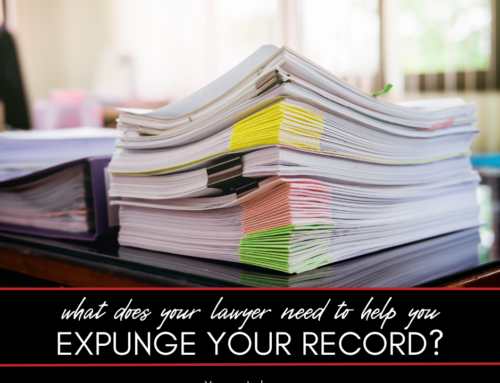
If you have a criminal record in Indiana, it can be a barrier to employment, housing, and other opportunities. However, you may be eligible to get your record expunged, which can help you overcome these obstacles. This guide will walk you through the process of expunging your criminal record in Indiana and provide you with the information you need to get a fresh start. Keep in mind that many people find it a lot easier to work with an attorney than to do it themselves.
How to Get Your Criminal Record Expunged in Indiana
This guide explains the following:
- Understanding expungement in Indiana
- Eligibility for expungement
- Collecting the necessary documents
- Filing the expungement petition
- What to expect after filing
Here’s a closer look at each.
Understanding Expungement in Indiana
Expungement is a legal process that allows you to remove certain criminal records from public view. In Indiana, this process is also known as “sealing” your record. When your record is expunged, it is treated as if the conviction or arrest never occurred. This means that you can legally deny the existence of the expunged record in most situations, such as when applying for a job or housing. However, it’s important to note that expunged records may still be accessible by law enforcement and other government agencies for specific purposes.
For many people, it’s easier to work with an attorney to expunge a criminal record than it is to go through the sometimes-confusing, drawn-out process themselves.
Eligibility for Expungement
Not everyone is eligible for expungement in Indiana. To qualify, you must meet certain criteria based on the type of conviction or arrest you’re seeking to expunge. There are different waiting periods for different types of convictions:
- Misdemeanors: 5 years after the date of conviction
- Class D/Level 6 felonies: 8 years after the date of conviction
- More serious felonies: 10 years after the date of conviction
Additionally, you must have completed all terms of your sentence, including probation, community service, and payment of fines and fees. You must also have no pending criminal charges or any new criminal convictions since the conviction you want to expunge.
Your attorney can help you determine whether you’re eligible.
Related: 5 tips to help you choose the right attorney for expungement in Indiana
Collecting the Necessary Documents
Before you can file an expungement petition, you’ll need to gather several documents to support your case. These include:
- A certified copy of your criminal history, which can be obtained from the Indiana State Police
- Copies of court documents related to your conviction, such as sentencing orders and proof of completed requirements
- Any other relevant documents, such as letters of recommendation or proof of rehabilitation
It’s crucial to be thorough in gathering these documents, as missing information can delay or hinder your expungement process.
The sooner you provide your attorney with these documents, the better.
Related: Expungement FAQ for Indiana
Filing the Expungement Petition
Once you have collected all necessary documents, you can file your petition for expungement in the county where your conviction occurred. You will need to complete the appropriate forms, which can be found on the Indiana Judiciary website or obtained from the county clerk’s office. Be sure to follow all instructions carefully and provide all required information.
In some cases, you may need to pay a filing fee, but fee waivers are available for those who cannot afford the cost. If you’re unsure about the process or need help with your petition, consult with an attorney experienced in expungements.
What to Expect After Filing
After you file your petition, the court will review your case and determine whether you meet the requirements for expungement. This process can take several months, so be prepared to wait. If the court grants your petition, your record will be expunged, and you can begin enjoying the benefits of a clean slate. If your petition is denied, you may be allowed appeal the decision – but you should talk to an attorney about your options.
By following these steps and understanding the expungement process in Indiana, you can take control of your future and remove the barriers that a criminal record can create. Keep in mind that expungement is not guaranteed, and the outcome depends on the specifics of your case and your ability to demonstrate your rehabilitation.
Related: Common misconceptions about expunging your record in Indiana
Moving Forward After Expungement
Once your criminal record is expunged, it’s important to take advantage of the opportunities it provides. With a clean slate, you can pursue better employment options, apply for housing without fear of rejection, and even regain certain rights, such as the right to vote or hold public office. Remember that your expunged record is still accessible by law enforcement and some government agencies, so always be honest when dealing with these organizations.
Maintaining a Clean Record
After expungement, it’s crucial to stay on the right path and avoid any criminal activity that could lead to new charges or convictions. This not only ensures that you maintain your clean record but also demonstrates your commitment to rehabilitation and personal growth. Be proactive in seeking education, job training, or counseling services that can help you build a better life and avoid potential pitfalls.
Expungement as a Second Chance
Expunging your criminal record in Indiana can be a powerful tool for turning your life around and opening doors to new opportunities. By understanding the process and working with an attorney to follow the steps, you can take control of your future and make the most of this second chance. Remember that seeking legal advice from an experienced attorney can also be helpful in navigating the complexities of the expungement process.
Do You Need to Talk to an Indiana Expungement and Sealing Attorney?
If you’re ready for a fresh start, we may be able to help. Call us at 317-647-5476 or fill out the form below for a free consultation on expungement. We’re here to answer your questions and get you the fresh start you deserve.













